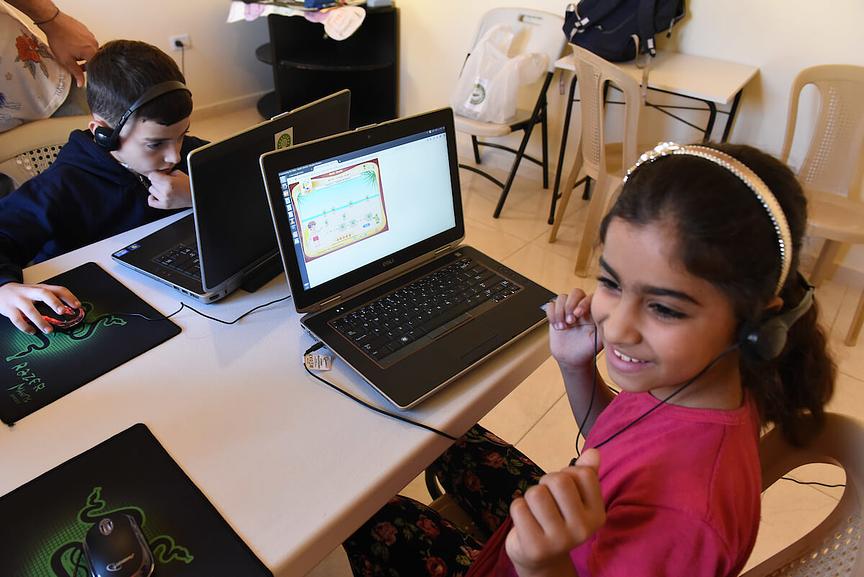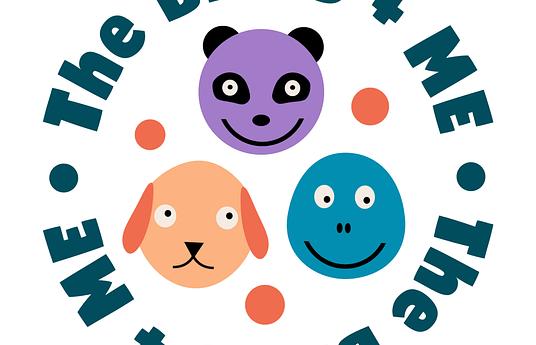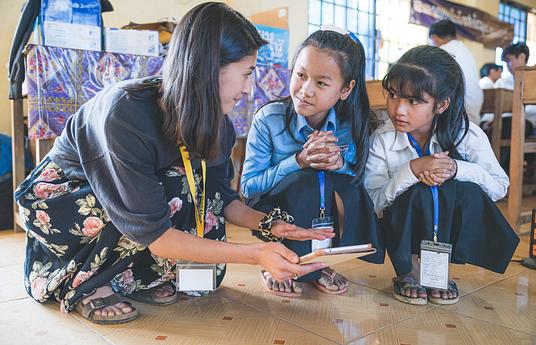Thaki was born out of the urgent need to address two growing global crises: the education gap affecting displaced and vulnerable children, and the environmental impact of electronic waste. As of 2024, over 120 million people are forcibly displaced worldwide. In the Middle East and North Africa, where we work, millions of children are out of school or in under-resourced classrooms with no access to stable electricity, internet, or digital tools. At the same time, millions of usable laptops are discarded annually, deepening the environmental crisis and wasting valuable resources.
Thaki connects these dots through a circular economy model. We collect gently used laptops from companies, install a curated platform of offline, interactive educational content—including digital literacy, STEM, life skills, and the UN Sustainable Development Goals—and distribute the devices to schools and learning centers in marginalized communities. We also equip educators with the training and resources they need to deliver impactful, technology-supported lessons.
Rooted in lived experience and driven by a belief in every child’s right to learn, Thaki is designed to unlock potential where its most often overlooked. Our innovation brings equitable, future-ready education to children affected by crisis—empowering them to build brighter futures while contributing to a more sustainable world.
To date, Thaki has reached over 41,000 children. We tackle essential learning gaps for refugee and vulnerable learners whose education has been compromised, through a unique technology-based model.
For schools: Thaki offers gently used laptops preloaded with around $4,500 of donated education software. The software is available offline, through a bespoke content app in Arabic and English.
For teachers: Thaki offers a Teacher Digital Toolkit, with 80+ training courses, videos and lesson plans, to build teachers’ digital literacy and enable them to use laptops and international learning content confidently and effectively in lessons. This toolkit is focused on teaching about the UN SDGs, digital literacy, STEM, life-skills, values, coding, language, and many other competencies aimed at equipping teachers, and therefore their students, for a rapidly changing world.
For learners: Thaki unlocks imagination and creativity, by providing some of the world’s best proprietary e-learning platforms for free. Students can explore National Geographic, discover animated value-focused videos with Big Bad Boo, learn coding with Scratch, and so much more.
For wellbeing and resilience: Thaki developed a social emotional learning program, Nour's World - an Arabic play-based mental health and psychosocial support program, for children aged 4 to 8, their parents and educators in deprived areas and conflict zones.
Thaki was born out of a need to respond to the Syrian refugee crisis. Initially launching in Lebanon and targeting Syrian refugees, Thaki has now expanded to UAE, Jordan and Egypt serving refugees of varying nationalities. Thaki has managed to grow regionally due to the strong network of strategic partners, educational content partners, electronic devices donors, and most importantly by the testimonials of those we serve.
In the past ten years, we have helped build the digital competence and skills of over 41,000 vulnerable learners, 50% of whom are female.
To date, we have distributed over 5,600 devices and equipped 183 schools with computers that are used, and useful. Every laptop includes 5,950 units of learning (videos, lessons, presentations, audiobooks, and interactivities) with an educational value of $4,500 per laptop. In the hands of over 41,000 learners, that’s $18.7 million of educational value since 2015.
Our measurable results demonstrate that our content increased skills, engagement, motivation, and made learning more fun, for students and teachers. Some highlights:
- Thaki’s program led to improvements in students’ knowledge in math, sciences, Arabic, English, and the environment.
- On word processing, spreadsheets, graphics and coding, learners’ skill index and use-frequency scores tripled in 10 months using Thaki computers.
- 71% of teachers said Thaki’s program had a positive impact on students with learning difficulties.
We have consistently enhanced Thaki’s innovation by curating additional content (150+ GB), and updating our technology based on user feedback. This includes a refreshed user interface and the launch of an app version of our Teacher Digital Toolkit, making our resources more accessible and portable. We’ve expanded our teacher professional development content to include updated modules on teaching and learning with AI, as well as inclusive practices to improve digital accessibility for learners with disabilities.
A significant addition is Nour’s World, a digital, self-guided program for young children, teachers, and parents. Aimed at children aged 4–8, particularly those who are refugees or living in vulnerable circumstances, Nour’s World addresses the critical need for early mental health support. It employs an innovative social emotional learning approach rooted in Cognitive Behavioral Therapy (CBT) and Emotion Focused Therapy (EFT), helping children recognize, communicate, and regulate emotions through engaging stories with 'Nour the rabbit'.
This program responds to research highlighting how trauma and chronic stress negatively impact the neurobiological, emotional, and social development of children—effects that are often invisible and untreated in conflict zones. With limited access to mental health support in low- and middle-income countries, Nour’s World offers a scalable, science-backed solution to build resilience among the youngest and most at-risk.
If you’re interested in trying Thaki, reach out to us for a virtual tour or watch our latest (Arabic-language) video showcasing new content and our updated user interface: https://youtu.be/18JTfPwr-3s?si=RWL0siGVY5B_NUjB.
You can access the Teacher Digital Toolkit via the Play Store or the web: https://tdt.thaki.org/, and Nour’s World is soon available on the Play Store.
To implement a Thaki-inspired solution in a new context:
1. Assess local needs – Understand gaps in access to devices, content, and connectivity.
2. Source and prepare devices – Secure donated or refurbished laptops/tablets and pre-load them with offline, relevant educational content.
3. Curate localized content – Tailor materials to your learners’ cultural, linguistic, and curricular needs, with inclusive options for diverse abilities.
4. Support teachers – Develop a practical toolkit with training resources and lesson ideas for easy classroom use.
5. Pilot in small settings – Launch with a limited group to test engagement and gather feedback.
6. Include social-emotional learning – Integrate trauma-informed content to support mental health and emotional resilience.
7. Engage partners – Collaborate with local education authorities, NGOs, and community leaders for support and sustainability.
8. Refine and scale – Use insights from the pilot to adapt and expand the model effectively.



